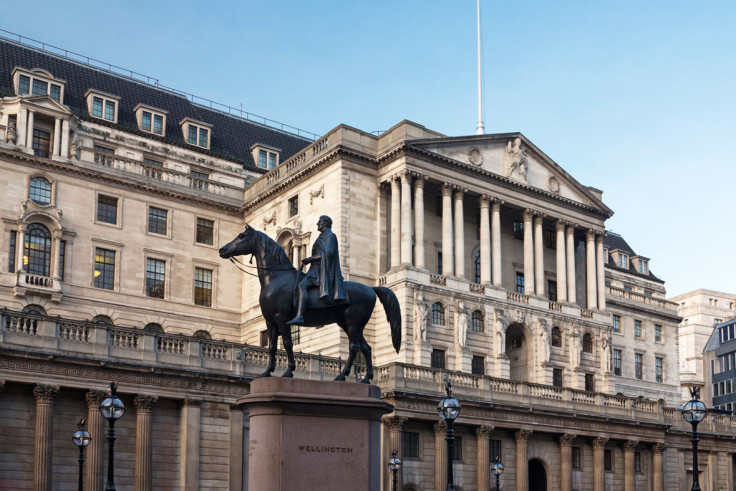Bank of England votes unanimously against interest rate rise amid slow inflation

The Bank of England's Monetary Policy Committee has voted 9-0 against an increase in UK interest rates as inflation remains low. Ian McCafferty, the member normally in favour of an interest rate rise, voted against on the back of slow inflation, minutes show.
This means the BoE keeps interest rates at 0.5% in the UK, while its asset purchasing programme remains unchanged at £375bn (€489bn, $547bn). The Bank of England also said it is expecting a slight increase in GDP growth in the coming years, with the economy expanding 2.4% in 2017 and 2.5% in 2018.
Both 2017 and 2018's GDP numbers have been revised down from 2.7% and 2.6% respectively. The current year is expected to see an economic growth of 2.2%, against a previous estimate of 2.5%.
"Since the November Report, global output and trade growth have slowed further and the latest data suggest a softer picture for UK activity in 2015 than previously assumed," the BoE said. "All members agree that, given the likely persistence of the headwinds weighing on the economy, when Bank Rate does begin to rise, it is expected to do so more gradually and to a lower level than in recent cycles."
Inflation is still near zero, reported 0.2% in December 2015, dragged down by low energy prices and still a far cry from the BoE's 2% target. However, the monetary policy makers said it is looking at employment figures for interest rate decisions rather than inflation.
The Institute of Director's chief economist James Sproule said that the MPC decision was unsurprising but voiced his concern that monetary policy in the UK is "overly accommodative and could be stoking debt-fuelled asset bubbles.
"Low inflation has clearly tied the MPC's hands," the economist said. The IoD argues that this has more to do with the low oil prices than lack of consumer confidence.
"While it is important that rate-setters remain vigilant about what global uncertainty means here at home, as the year progresses, and if stability returns, the Bank should begin to provide greater clarity about the precise timing of the first interest rate rise," Sproule said. "The trigger for normalising rates remains economic strength rather than inflationary concerns."
© Copyright IBTimes 2025. All rights reserved.






















